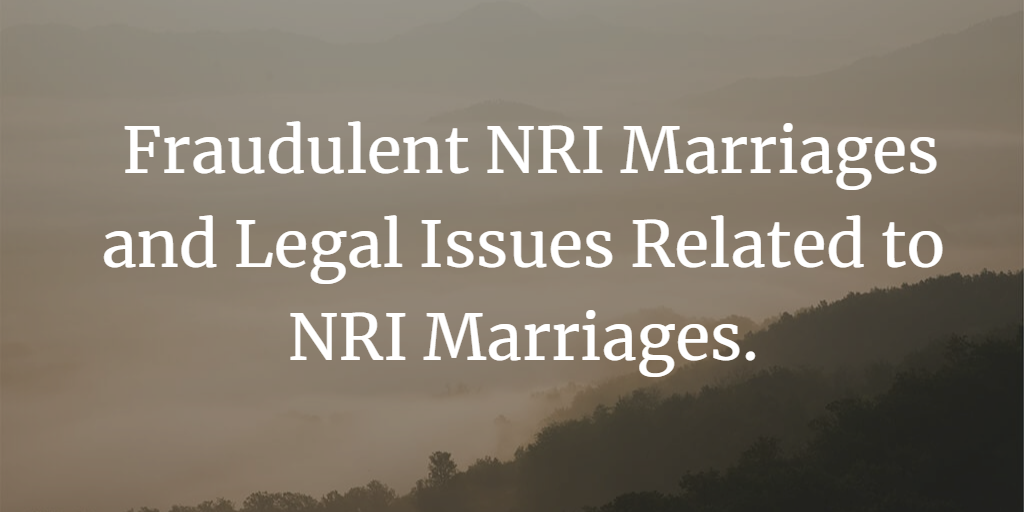Fraudulent NRI Marriages and Legal Issues Related to NRI Marriages.

Table of Contents
Introduction
Types of Fraudulent NRI Marriages
Legal Issues in NRI Marriages
Remedies for Victims
Criminal Remedies
Civil Remedies
Preventive Measures
Conclusion
Introduction
The increasing number of Non-Resident Indian (NRI) marriages has led to a rise in fraudulent matrimonial practices, leaving many innocent victims in a legal quandary. This article examines the various types of fraudulent NRI marriages, the legal issues that arise in cross-border matrimonial disputes, and the remedies available to victims in India.
Types of Fraudulent NRI Marriages
Fraudulent NRI marriages often involve deception and exploitation for personal gain. Common types of fraudulent NRI marriages include:
Marriage of convenience: A marriage entered into solely for immigration benefits, such as acquiring a visa or permanent residency.
Concealment of material facts: The NRI spouse may hide information about their marital status, employment, income, health, or criminal history.
Abandonment: The NRI spouse abandons their spouse in India soon after the marriage, often after obtaining dowry or gifts.
Domestic violence and abuse: Cases where the NRI spouse subjects their spouse to physical, emotional, or financial abuse, either in India or abroad.
Legal Issues in NRI Marriages
Cross-border matrimonial disputes often involve complex legal issues, such as:
Jurisdiction: Determining which country's laws and courts have authority over the dispute can be challenging in NRI marriages.
Enforcement of foreign judgments: Enforcing judgments obtained in foreign courts may be difficult due to differences in legal systems and procedures.
Child custody: Disputes over child custody can become complicated when parents reside in different countries and are subject to different legal systems.
International abduction: Instances where one spouse takes their child to another country without the consent of the other spouse can create legal complications.
Remedies for Victims
Victims of fraudulent NRI marriages can seek legal recourse through criminal and civil remedies.
Criminal Remedies
Criminal remedies can be pursued under the Indian Penal Code (IPC) for offenses such as cheating, cruelty, dowry harassment, and criminal breach of trust. Additionally, the Ministry of External Affairs has introduced the 'Registration of Marriage of Non-Resident Indian Bill' to provide greater protection to Indian nationals married to NRIs.
Civil Remedies
Civil remedies can be sought through family courts in India for matters related to divorce, maintenance, child custody, and the division of matrimonial assets. In some cases, victims may also seek relief under the Protection of Women from Domestic Violence Act.
Preventive Measures
Preventive measures can help mitigate the risk of fraudulent NRI marriages:
Background checks: Thoroughly verifying the NRI spouse's background, employment, and marital status before marriage can help identify potential red flags.
Legal documentation: Ensuring that all legal documents, such as the marriage certificate, are in place can provide a solid foundation for any future legal actions.
Awareness: Being aware of one's rights and the legal recourse available in case of a fraudulent NRI marriage is crucial for self-protection.
Conclusion
Fraudulent NRI marriages pose a significant challenge for individuals caught in cross-border matrimonial disputes. Understanding the legal issues and remedies available can help victims navigate the complexities of these situations. It is essential for individuals to take preventive measures and remain vigilant to protect themselves from potential exploitation in NRI marriages.


